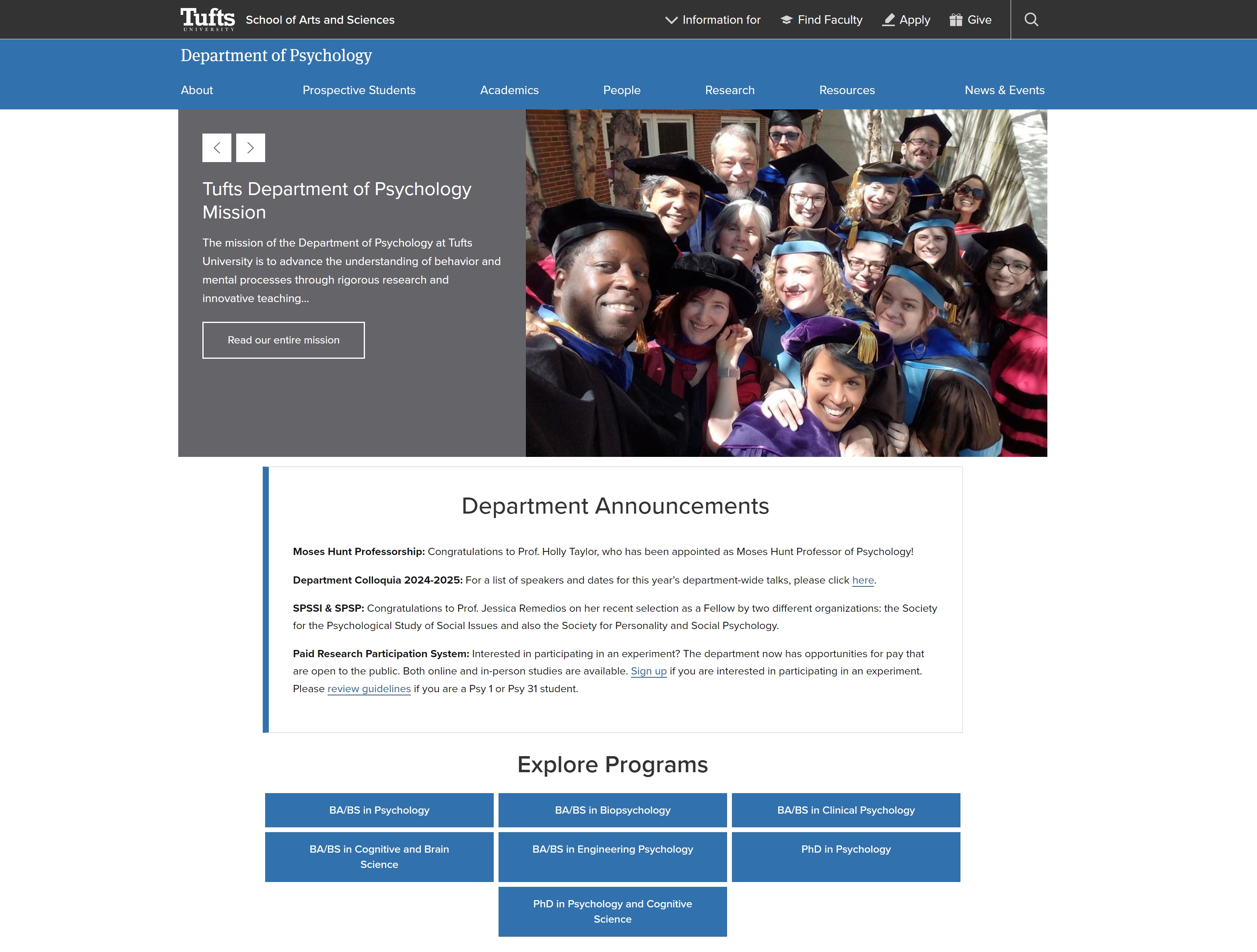
Stony Brook University--SUNY Department of Psychology
The Department of Psychology at Stony Brook University is highly ranked, with distinguished faculty and successful students. It offers strong programs in clinical, social, cognitive science, and integrative neuroscience.

Detaljeret Introduktion
Stony Brook's Psychology Department is committed to diversity, equity, and inclusion. It provides excellent opportunities for graduate and undergraduate students, with notable achievements and faculty appointments. The Psychology Department is currently ranked #73 according to the Academic Ranking of World Universities (ARWU) Global Ranking of Academic Subjects, and the Department is ranked 39th nationally among graduate programs by US News & World Reports. In addition, the Clinical Psychology program is ranked 3rd in the country by US News & World Reports.
MereUniversitet

Carnegie Mellon University Department of Psychology
Welcome to Psychology at CMU. With nearly 30 award-winning faculty and almost 150 people in total, we are a vibrant community whose research continues our department's 100-year tradition of studying the deeper mechanisms and processes underlying human behavior and its social and neural bases. Innovation is in our DNA: our department has been at the center of helping create new scientific initiatives in artificial intelligence, cognitive science, neural-nets, the role of behavior and medicine and, more recently, university-wide efforts in brain research, artificial intelligence and the science of education.

Ghent University Department of Psychology
Ghent University is an open, pluralistic and socially engaged university.

Tufts University Department of Psychology
The Department of Psychology at Tufts University conducts cutting-edge research aimed at understanding the causes and consequences of mental processes and behavior. Our work addresses social, cognitive, and neural levels of analysis. We are innovative and interdisciplinary in our approach and emphasize understanding phenomena that have a direct impact on society. Scientists at all levels - faculty, postdoctoral trainees, and graduate and undergraduate students - engage in collaborative scholarship and critical thinking in the classroom and in the laboratory. This synthesis, between research and teaching, positions us to ask and answer fundamental questions while also enriching our students' understanding of psychology.